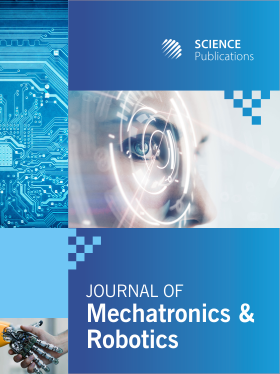Contributions to the Synthesis of Fixed Axle Gears by Avoiding the Interference Phenomenon
- 1 Bucharest Polytechnic University, Romania
Abstract
It can be seen that the minimum number of teeth required to avoid interference for the standard pressure angle, normally on the alpha0 = 20° decomposition circle, is 13, corresponding to a transmission ratio i = 1 and increases with the transmission ratio i reaching to the maximum value of 18 teeth for i>100. For normal transmission ratios, values ranging from 13 to 17 teeth for standard pressure angle. If alpha0 decreases to 4°, zmin varies between 275 and 410 teeth. When alpha0 increases to 35°, zmin varies between 5 and 6 teeth. By lowering the number of teeth of the drive wheel 1, the coverage and gearing decreases as well as increases the pressure angle, increases effort, wear and reduces the life span of the gear. If we increase in turn, the minimum number of input wheel teeth increases the coverage, increases the gear efficiency, reduces the pressure angles and effort in the coupling, increases gear reliability and operates with much lower vibrations and noise, with high yields and for a longer time. The minimum number of teeth required to avoid interference is basically a function of the transmission ratio i = |i12| = z2/z1 and the normal pressure angle of the alpha circle and the angle of inclination of the beta teeth. This is practically also maintained in internal gear gears, where there are still two additional types of interference. It is noted that zmin decreases when i decreasing and when alpha0 and/or beta increases.
DOI: https://doi.org/10.3844/jmrsp.2019.280.300

- 4,987 Views
- 2,504 Downloads
- 0 Citations
Download
Keywords
- Gears
- Gearing
- Avoid Interference
- Robots
- Mechatronic Systems
- Mechanical Transmissions
